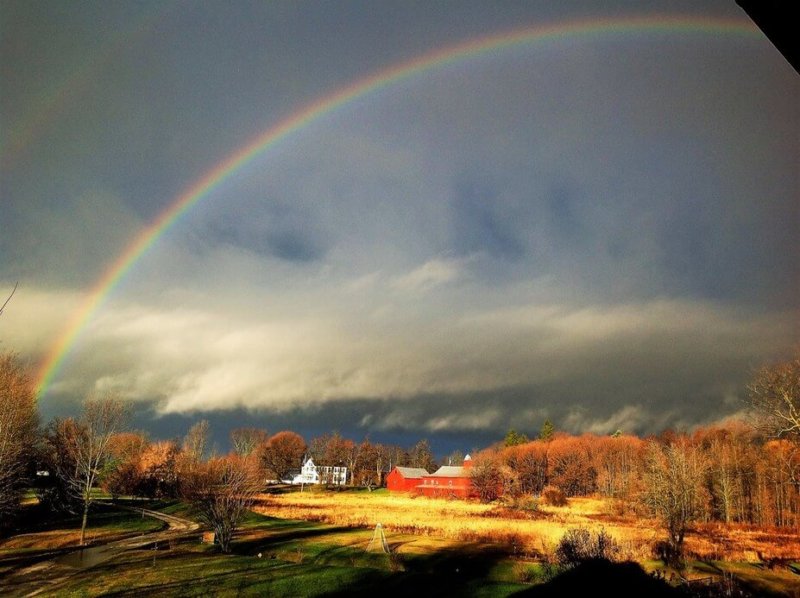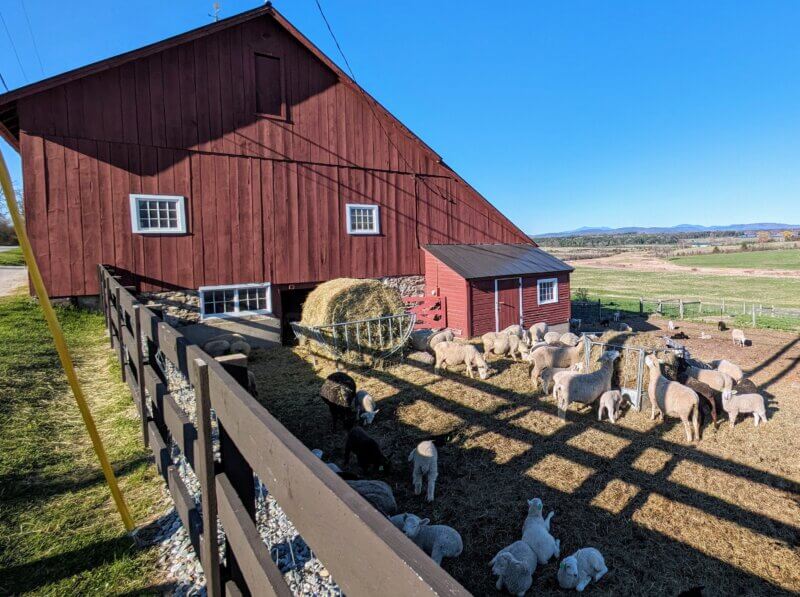Nonprofit ownership shifts farm’s focus from cows, carrots to culture, community
Inside the 1700s Barn House at Clemmons Family Farm, visitors won’t find plows and animals feeding but posters of African American artwork lining the walls and comfortable couches welcoming visitors for gatherings.
Lydia Clemmons, whose parents bought the Charlotte farm 61 years ago, decided in 2019 to convert the operation to a nonprofit organization focused not on farming but on its status and history as one of the few agricultural working sites in Vermont — and the nation — founded by Black owners. The nonprofit, Clemmons Family Farm Inc., first took over the land and property and leased space back to the organization to serve as a multicultural community center hosting events, exhibits and educational activities. Many black artists and historians have gathered for the past five years at Clemmons farm, seen as a safe place to discuss Black history and culture in Vermont.
“It’s rare to hear, ‘Come and I’ll tell you what jambalaya is and teach you about the blues’ in Vermont,” Clemmons said of the farm’s mission today.
In December, Clemmons Family Farm Inc. officially purchased the farm operation itself. Overseen by a board of directors. Lydia Clemmons serves as president and executive director of the 501(c)3, or tax-exempt, entity.
Recently, the farm hired two staff members to develop a curriculum for students meant to expand children’s knowledge of Black culture beyond the painful narrative that many schools provide.

Clemmons Family Farm
Both the Clemmons Farm and Philo Ridge Farm, another agricultural landmark in Charlotte, shifted to nonprofit status last year. In November, Philo Ridge shuttered its on-farm market and restaurant, announcing that it would pivot from selling goods for profit to using the land for education and community-building.
As agricultural land slowly dissipates in Vermont and farm businesses become difficult to uphold, Vermonters are watching the image of a barn on every rolling hill and the soundtrack of far-off moos fade. Owners of farms like Clemmons and Philo Ridge are turning to nonprofit models to preserve the agricultural landscape, so cows always have a patch of fresh Vermont grass to munch and vegetables have plenty of space to grow.
According to the Vermont Agency of Agriculture’s 2022 agriculture census, the amount of farmland throughout Vermont has decreased by 19,000 acres in the last five years, amounting to a 4 percent decrease in Vermont farms. Nonprofit status means farms are tax-exempt and can receive grant money from the state and federal government and charitable foundations, easing the pressures of depending on economic viability to keep a farm farm operation going.
“Our agricultural land is more at risk than ever before,” said Abbey Spires, director of the agriculture development division for the Vermont Agency of Agriculture, adding that last year, the downward trend continued
Development and infrastructure projects continued to encroach on farmland, and the crucial summer growing season was damaged from July flooding, Spires said.
“It is really hard to hold on to land,” Clemmons said, “Many farmers are forced to make the choice to sell their land or consider switching to a nonprofit model.”
On its website, Clemmons Family Farm describes itself as one of the 0.4 percent of farms in America with Black ownership. Lydia Clemmons’ parents, Jackson and Lydia Clemmons, now both over 100 years old, purchased their Charlotte land in 1962 and always had a goal to bring the community together and educate the region on African American culture. The impetus for the nonprofit shift came from that foundation, Clemmons said.
Philo Ridge Farm owners Peter Swift and Diana McCargo announced in November that they planned to transition to a nonprofit that would allow them to sustain the farm and use it to study ways to “continue to support the future of food and agriculture in Vermont,” according to the owners’ email newsletter to farm customers.
A public relations representative for the farm declined a request for an interview with the owners earlier this month and said they had no new information. “Right now, the farm is operating as a working farm with a limited staff, raising animals and grazing the land,” emailed Morgan Whitehouse, the owners’ spokesperson, who is based in Charlotte.
On the farm’s website, the Philo Ridge owners wrote that a change to nonprofit farming will allow them to “pursue new opportunities in farming, science, research and education” and a long-term goal of expanding their research on regenerative agriculture to help other farmers.

Philo Ridge Farm.
The concept of nonprofit farm ownership isn’t new in Vermont. One of the most prominent and successful, Shelburne Farms, formed as a nonprofit in 1972 and took over the Chittenden County property that the Webb family had owned for generations in 1986. The tax-exempt operation highlights agriculture as an educational tool to teach the value of society staying connected to nature.
Spires, of the state agency, said she has seen little research on how an increase in nonprofit farms affects communities, but she believes both the businesses and their communities can benefit. On the business side, she said, a nonprofit board management structure provides a variety of perspectives on operations.
“Farms have become increasingly complex,” she said. “It is valuable as a nonprofit to have shared decision making.”
Nonprofit farms often collaborate with other farmers to support the larger agricultural community, more than for-profit farms typically do as competitors, Spires said. While many nonprofit farms maintain their land but do not sell goods for revenue, they can work with other farmers in the sale and upkeep of crops.
Clemmons Family Farm has lent its farmland for free since the owners stopped selling their own crops in the 1980s. This way, other local farmers can profit from their fields.
“It’s important to keep the land in use,” said Clemmons, explaining that the soil could lose nutrients if it sits idle. This collaboration allows the land to stay preserved for agriculture and gives local farmers a way to expand and stay viable.
Farming has value beyond being an economic enterprise, Spires said. As a nonprofit, a farm provides a foundation for new knowledge about sustainability and agriculture techniques. When operated sustainably, Spires said, farms can improve soil health and productivity.
Nonprofit farms, Clemmons said, aren’t just about farming. They’re also cultural touchstones.
“Opening as a nonprofit can be a way to preserve the land,” she said, “and keep traditions going.”

